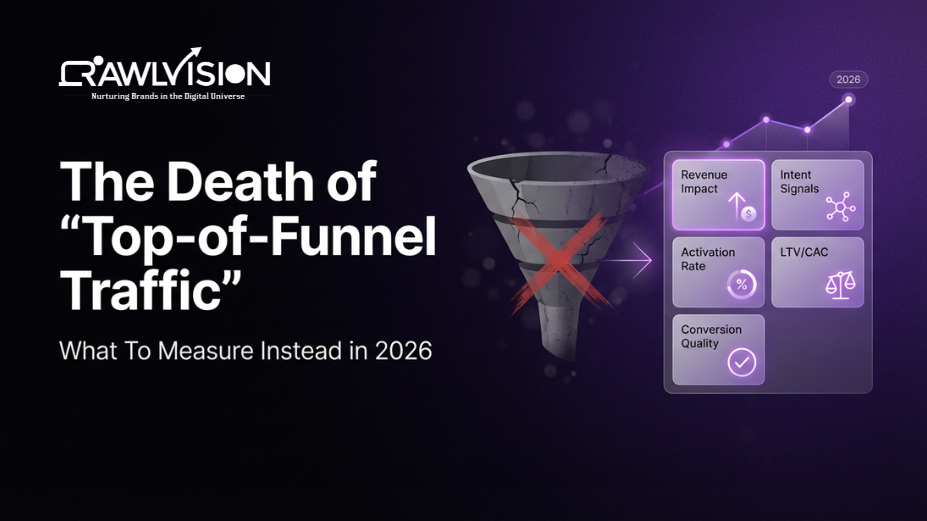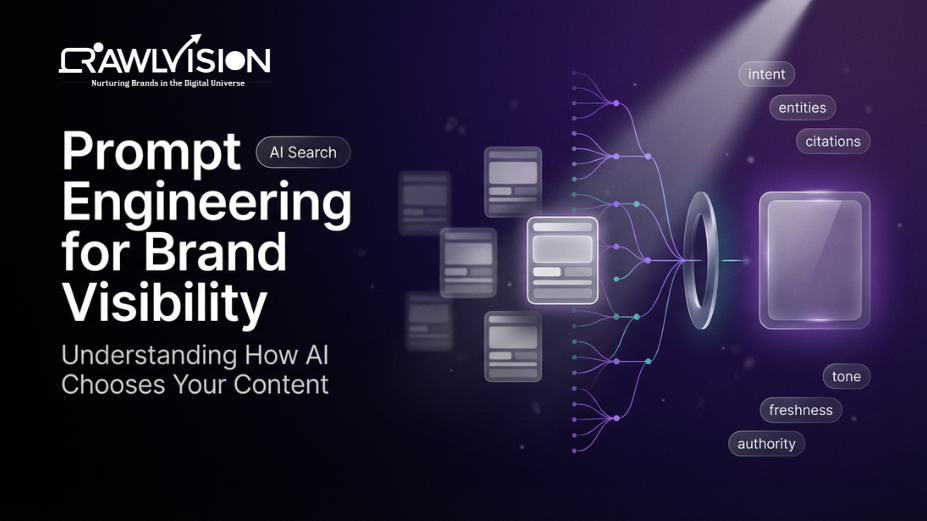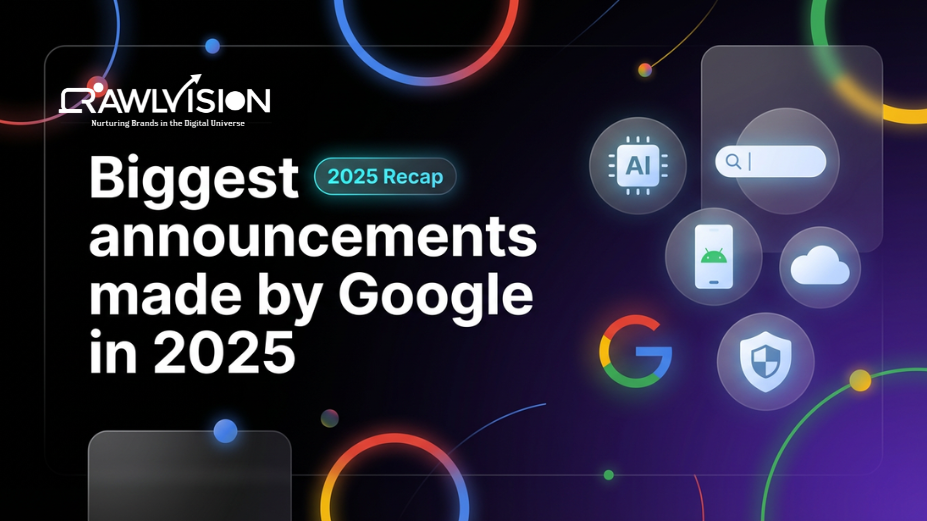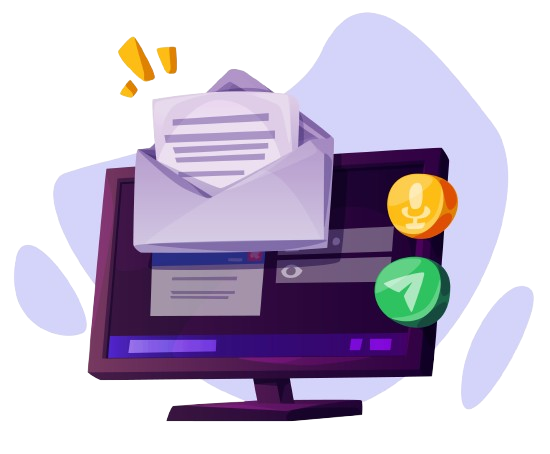Crawl Vision Blog
SEO Strategies, Tips, and Trends to Propel Your Rankings























Most-Read Posts
That Drive Real Results
The Death of “Top-of-Funnel Traffic”: What To Measure Instead in 2026
This does not mean TOFU is dead. It means traffic is no longer the right primary metric. TOFU should...
Why Some Brands Appear in AI Answers- A Guide to Prompt Engineering
What “AI choosing your content” actually means
When a brand appears in AI-generated answers, it usually...
Biggest announcements made by Google in 2025
Below are the biggest announcements Google made in 2025, grouped by what they actually change for brands,...
Dive Into Every Post &
Unlock Your Next Big Win.
The Death of “Top-of-Funnel Traffic”: What To Measure Instead in 2026
This does not mean TOFU is dead. It means traffic is no longer the right primary metric. TOFU should now be measured…

Why Some Brands Appear in AI Answers- A Guide to Prompt Engineering
What “AI choosing your content” actually means When a brand appears in AI-generated answers, it usually happens because of one or more…

Biggest announcements made by Google in 2025
Below are the biggest announcements Google made in 2025, grouped by what they actually change for brands, with clear action steps after…

Stay Updated with Our Latest Insights
Get expert articles, trends, and updates delivered straight to your inbox.
By clicking the “Subscribe” button, I agree and accept the privacy policy of Search Engine Journal.

